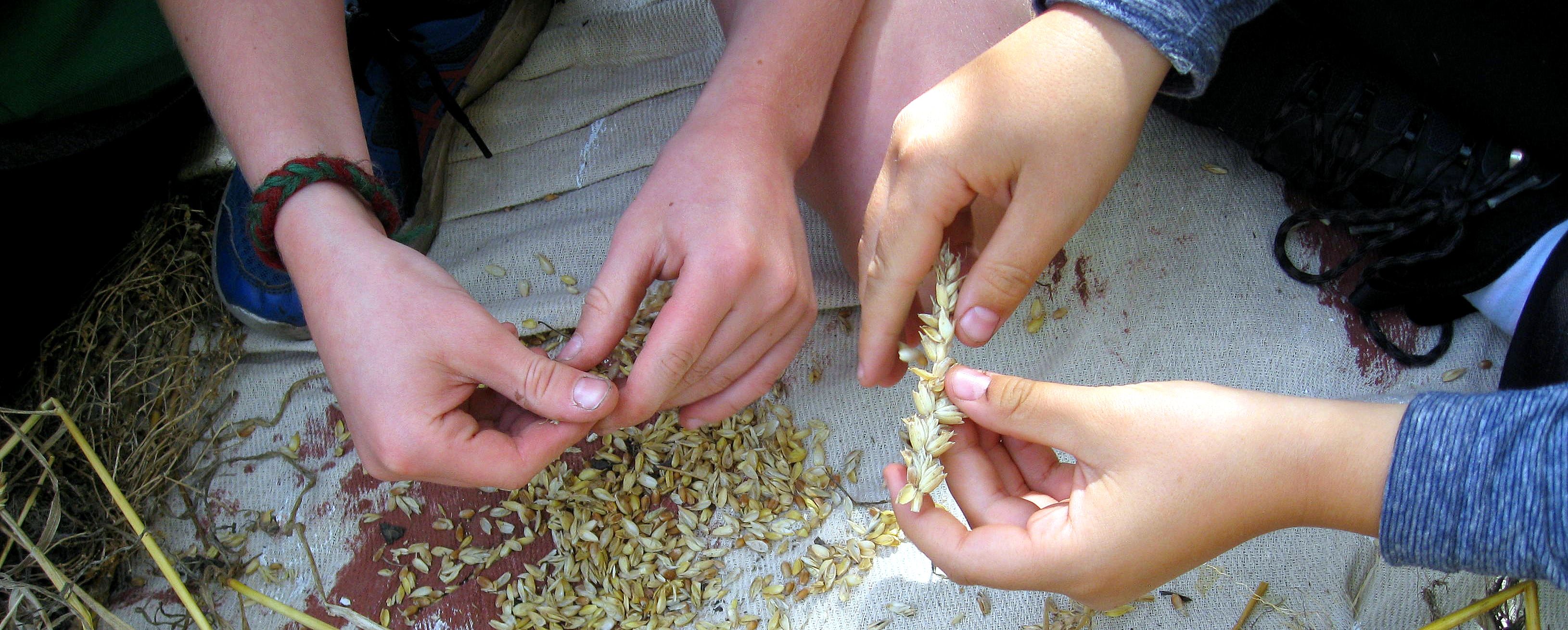A plant knows how to awaken, to grow, to put down roots, to push up shoots, to put forth leaves and, finally, to blossom and fruit. All this it manages without any help, moving from each stage to the next when the time is right – unless, of course, it is put in a greenhouse, or fed concentrated plant feed. In which case there will be premature blossoming and a crop of unseasonal fruit!
Steiner education is fundamentally allowing the child to develop in a natural way and to thrive in the best possible conditions. It places at its core an understanding of childhood development which recognises that there comes a time when a child is naturally ready to begin formal learning – to read and write, to learn about the world of numbers.
In Steiner education, this coincides with the change of teeth, around the seventh year. By this stage, if progress has not been forced, the child will have developed a natural hunger for learning. Teaching at this age draws upon the forces of imagination that should still be so active in the child. For a child of this age, abstract concepts and ideas are lifeless and largely meaningless. For that reason the teacher must create each lesson anew, enlivening it in such a way that the child is engaged imaginatively in the process of learning.
The teacher chooses subject matter which helps the child to understand her experience and place in the world at each stage of her development. Rudolf Steiner called this ‘soul food’ – when that which we teach meets the child in a way that reflects her experience of the world in that moment.
Educational targets, tests and universal curricula have nothing to do with this process. Each child will engage and learn in his or her own way. The child is not pushed towards a particular attainment level or set of targets. Rather than experiencing possible ‘failure’, a child’s achievements, in whatever area of learning, are celebrated in order to foster a deep and life-long love of learning. Children are encouraged to appreciate each others’ gifts, rather than focusing on comparison and competition – an essentially human approach to social interaction, but one which has been largely replaced by an obsession with ‘doing better than’ and ‘getting ahead.’
In this respect, Steiner education utterly rejects current educational dogma. We put faith in the child, not in the system. The child is not an empty cup waiting to be filled with predigested information, but a being who will grow and develop into the fullness of their potential when the conditions are right. When parents and teachers work together to promote such conditions, the young people who emerge are often remarkable for their love of learning, their ability to direct their own lives and their confidence when engaging with an unpredictable world. ‘Our highest endeavour,’ wrote Rudolf Steiner, ‘must be to develop free human beings who are able of themselves to impart purpose and direction to their lives.’

